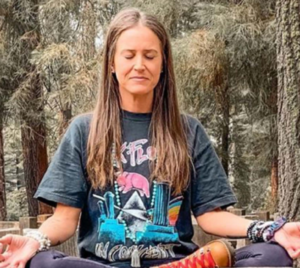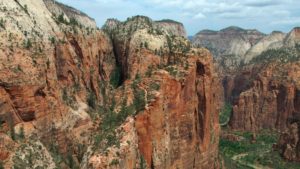 I’ve never hiked Zion National Park, but I know people who have. It’s a rugged canyonland where a person can get lost, flash floods can roar through narrow canyons without warning, and there are cliffs to fall from.
I’ve never hiked Zion National Park, but I know people who have. It’s a rugged canyonland where a person can get lost, flash floods can roar through narrow canyons without warning, and there are cliffs to fall from.
Holly Courtier, 38, of Woodland Hills, California, got lost after hitting her head on a tree and becoming disoriented.
Courtier lost her nanny job during the pandemic because her employers could no longer pay her, so she bought a van to live in while visiting and hiking in national parks. She made her way to Zion, was dropped off by a shuttle bus at a picnic area and trailhead on October 6, and headed out alone, and without a phone, on what was to be a short hike. She intended to be picked up three hours later, but didn’t show.
She was reported missing, and a massive search was launched involving sheriff’s deputies, rangers from Grand Canyon, Bryce Canyon, and Lake Mead, K-9 units and cadaver dogs, drones, and volunteers. Searchers asked the public for help, and this would prove key. Twelve days went by, then park visitors spotted her and directed rangers to her location, where she was rescued from a “thickly vegetated area” near a riverbed. Read story here and here.
Her daughter says Courtier was too weak to seek help, “unable to take more than a step or two without collapsing,” and so dehydrated she could barely open her mouth. Her sister says Courtier had “bruises all over her body.” She was taken to a hospital, where she is gradually rehydrating. Read updates here and here.
That’s a long time to survive, injured, alone, and without food, in the wild. It will make for quite a survival story.
Update (10/21/20): A sheriff’s deputy says there are “discrepancies” in Courtier’s story. Read update here.
Meanwhile, here are some tips for hiking safely: It’s always better to go with someone, i.e., use the buddy system. Phones may not work in wilderness areas, so have signaling devices with you — a whistle, a mirror, something bright-colored visible from the air. Electronic devices can fail, so don’t depend on GPS alone; have a compass and map, and know how to use them. Carry the Ten Essentials (listed here), warm clothing, rain gear, and an emergency food supply. If you become lost or disoriented, stay put, so searchers can find you; you’ll be harder to find if you’re wandering around in circles. Last, but not least, tell someone where you’re going, when you expect to return, give them a detailed itinerary, and stick to it, so searchers will have a good idea of where to find you, if you fail to return.
